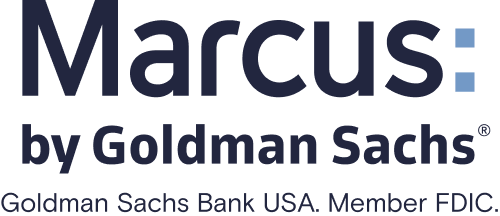CD Loan: How It Works
A CD loan lets you borrow from your CD while it earns interest. It’s an uncommon type of secured loan.

Many, or all, of the products featured on this page are from our advertising partners who compensate us when you take certain actions on our website or click to take an action on their website. However, this does not influence our evaluations. Our opinions are our own. Here is a list of our partners and here's how we make money.
Typically the only way to use money from a certificate of deposit at a bank or credit union before its term ends is to withdraw early and pay a penalty. But there’s an alternative: borrowing a lump sum from the bank holding your CD. You pay back that sum over time, with interest. You have two accounts active at once: the CD itself and this new CD loan.
CD loans are not as common as other types of personal loans, but they can accomplish two things that other loans do as well: provide cash in an emergency and help build or rebuild credit. Know the advantages and risks of CD loans before you decide to get one.
What is a CD loan?
A CD loan, or CD secured loan, is a type of personal loan that uses a CD as collateral. You might be more familiar with other secured loans such as mortgages or auto loans, which require collateral in the form of a home or car to back the loan.
CD loans have some advantages. For one, interest rates tend to be much lower than for unsecured loans and credit cards. And two, a CD loan is typically easier to get and be approved for than other personal loans or credit cards. Approval can happen quickly, such as within a business day, depending on the bank or credit union.
But the downsides can be big. Like other secured loans, the lender can seize the collateral — your CD — if you stop making payments. Your CD funds would be used to pay off the loan.
If you don’t want to lock up funds in a CD, a CD loan isn’t your best option to build credit. Consider alternatives such as secured credit cards or credit builder loans.
Key features of a CD loan
Typically fast approval decisions and access to funds. Some banks have CD loan approvals in less than a business day and access to funds shortly after or within days.
Low fixed interest rates. Some banks and credit unions set the minimum rate on their CD loans such as 2% over the CD rate. This means if your CD pays a 1% savings rate, for example, loan rates start at 3%. Rates will vary based on your credit, the length of the loan and other factors, but they're unlikely to be near what the average credit card APR is. Lenders can afford low rates because a CD loan is less risky for them than a credit card or unsecured personal loan.
» Learn more about secured loans
Marcus by Goldman Sachs 7 Month No-Penalty CD

3.90%
7 months
Discover® CD

3.50%
6 months
Discover® CD

4.05%
1 year
Who are CD loans best for?
Those who are building credit and don’t have access to a credit card. Common ways to establish credit history include getting a secured credit card or becoming an authorized user on another person’s credit card. But if you’re unable to do either, and you have a CD, a CD loan can be a solution. (Learn more about building credit.)
Those who need emergency funds from their CD before it matures. To help gauge whether a CD loan makes sense for you, first check what your CD’s early withdrawal penalty is. It might be cheaper and easier to simply break open a CD early. (Calculate the cost using this guide to CD penalties.) If the penalty would be more than a CD loan’s fees and interest, consider a CD loan.
» Need a CD someday? See the best CD rates
Pros
CD loans can build credit. Like other credit products, a CD loan provider reports payments to the credit bureaus. Creating a history of timely payments can help your credit.
Your CD continues to earn interest when you take out a CD loan. Your CD can do double duty by growing your money and acting as collateral.
Cons
You’ll lose money from the CD if you can’t pay off the loan. Generally, if you stop making payments, a bank will use your CD to pay off the remaining debt and defaulting will hurt your credit. It’s a double whammy: You lose savings and your credit score drops.
CD loans aren’t common. Many national banks don’t offer them, with at least one exception: BMO. Your CD likely will have to be at the same bank that offers the CD loan.
CD loans can carry fees, such as an origination fee. This is in addition to the interest you'll pay.
During a CD loan, your CD funds are frozen, or put on hold. Normally, when you open a CD, you can break the seal in an emergency, withdraw your money and pay an early withdrawal penalty. The cost can range from months to a year’s worth of interest. But when a CD becomes collateral for a loan, you generally must pay off the loan before you can access your CD again.
How to get a CD loan
Here’s a step-by-step process:
Apply for a CD loan on a bank’s website, on the phone or at a branch. Your income and credit history may be evaluated.
Choose the loan term, which can be up to or around the CD's maturity date.
Choose the loan amount. Generally, it can’t be more than the amount in your CD, and a bank may cap the amount at a certain percentage of your CD.
Pay any fees. CD loans can have an origination fee and late fees, among other costs. Check these before you apply.
If approved, receive the loan. Your CD funds are put on hold until the end of the loan, while your CD is still earning interest and its term continues. You can use the loan to pay for emergency expenses, consolidate debt, or take care of other needs.
Pay off the loan in monthly payments. Once the CD loan is over, check to see how long your CD has left in its term; at maturity, you can withdraw funds without having to pay an early withdrawal penalty. (Learn more about the process when a CD matures.)
A CD loan can come in handy in some scenarios, but know the risks and make sure it’s a good fit for you before committing.













